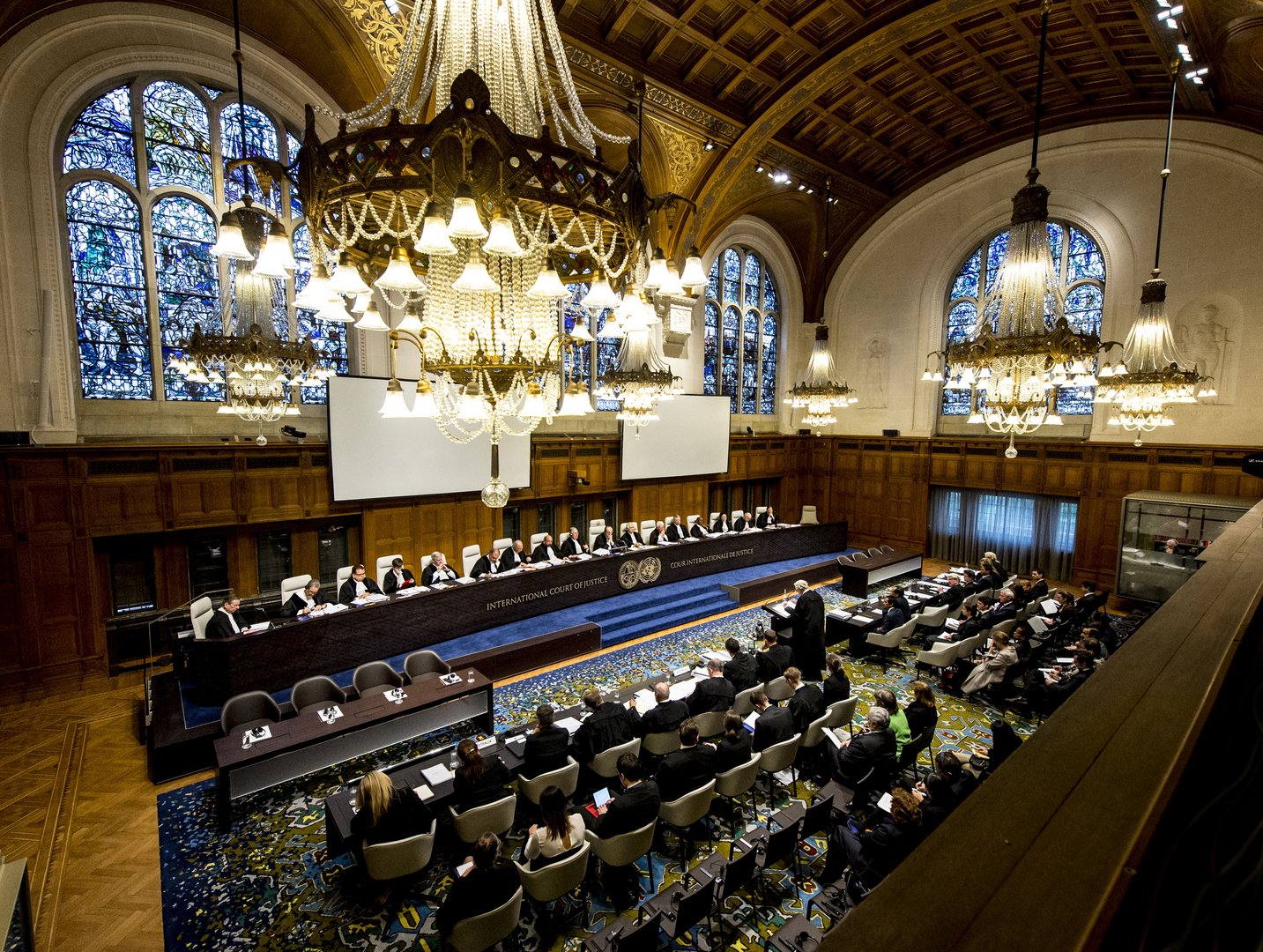Advisory opinions do not bind states but it is an exercise of soft power
The UN General Assembly signalled its decision to challenge Israel’s treatment of the Palestinians the day after the new Israeli government of Benjamin Netanyahu took office. By a 60-state majority it decided to request that the International Court of Justice (ICJ) give an advisory opinion on two questions, the aim of which appear to be statehood for Palestinians independently of the wishes of Israel.
Unsurprisingly the decision infuriated the Israeli prime minister. He condemned the decision to involve the ICJ saying the Jewish people are not occupiers in their own land, let alone in their eternal capital Jerusalem.
For their part, the Palestinians welcomed the decision as essential to their survival. “The time has come for Israel to be subject to law and be held accountable for its ongoing crimes against the Palestinian people” was how the Palestinian representative at the UN characterised the resolution of the UN General Assembly.
The first question for the ICJ is what are the legal consequences of Israel’s ongoing violation of the right of the Palestinian people to self-determination, arising from its prolonged occupation, settlement and annexation of Palestinian territory since 1967 including measures taken by Israel aimed at altering the demographic composition and character and status of the Holy City of Jerusalem and from its adoption of related discriminatory measures?
The second which follows on from the first how those policies of Israel affect the legal status of the occupation and the legal consequences that arise for all countries of the UN from that status?
The General Assembly asks the ICJ to consider the rules and principles of international law, the UN Charter and international humanitarian and human rights law and answer the questions accordingly.
This is not the first time the ICJ has been asked to pronounce on the treatment of the Palestinians by Israel. In the Israeli Wall Advisory Opinion in 2004 the ICJ was asked about the legal consequences of the Wall the Israelis built to keep Palestinians out which the court held was unlawful. In reaching its conclusion the court ruled that the 4th Geneva Convention that protects civilians caught up in armed conflict is applicable in the occupied Palestinian territory.
In that case Israel argued a number of jurisdictional points against the ICJ providing an advisory opinion the most important of which was that the question raised was not a legal but a political one. The ICJ held that it was a legal question with a political aspect. Israel had also argued that the 4th Geneva Convention did not apply in the occupied territory because it was not part of the sovereign state of Jordan when it occupied it in 1967 but the court held that not to be a bar.
The ICJ can only give an advisory opinion on legal questions and has discretion to refuse to give an opinion if there are compelling reasons against giving one. It is not unusual for states to argue before the court that it should exercise its discretion to refuse advisory opinions but it seems that once an august institution like the UN General Assembly decides to request an advisory opinion the court will only refuse to provide one in exceptional circumstances.
Advisory opinions do not bind states to act in accordance with international law as declared by the court. It is an exercise of soft power by the court which is the way international law works generally, since unlike national courts the ICJ has no enforcement powers and has to rely on the consent of states.
A notable example of advisory opinion that has had a significant impact on international relations is the Namibia case in 1971 that advised that the acts created by foreign occupation are illegal under international law but acts done for the benefit of the individual such as the issue of birth, marriage and death certificates are lawful.
A more general case involving the law itself rather than a specific issue between states was Nuclear Weapons advisory opinion in 1996 which declared that the use of nuclear weapons in self defence was not unlawful. For self defence to be lawful it has to be proportionate so the court held the proportionate use of nuclear force would be lawful. The ICJ has been criticised for being pusillanimous and for being in thrall of the nuclear powers and that the inherent right of self defence does not inhere in acquiring weapons of mass destruction. It is not conducive to non-proliferation of nuclear weapons for states to be encouraged to believe that acquiring nuclear weapons for use in self defence would be lawful.
Two more recent advisory cases were first the Kosovo case in 2010 in which the court was asked to rule on the right to secession of Kosovo from Serbia in the context of the right to self-determination, which has developed the law in favour of secessionist movements from repressive regimes
The other is the ruling in the Chagos Archipelago case on Britain’s retention and renting out of military bases in the Chagos islands to the US on the independence of Mauritius of which the islands are a part. The court held that Britain had an obligation to decolonise the islands as the Chagos islanders right to self-determination was fully engaged on independence.
I suspect that the Kosovo and Chagos advisory opinions on self-determination have inspired the General Assembly to bite the bullet in the most intractable Israel-Palestine problem. Who knows maybe just maybe the next advisory opinion the court will be asked to provide will be on the second most intractable problem, our very own Cyprob.
Alper Ali Riza is a king’s counsel in the UK and a retired part time judge







Click here to change your cookie preferences